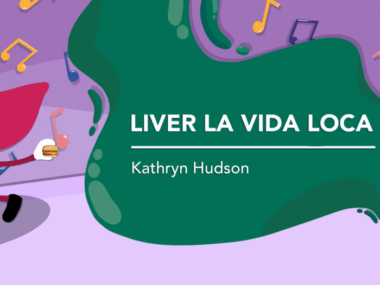Rare Liver Diseases Month shines spotlight on transitions in care
Campaign seeks to raise global awareness about various rare liver disorders
Written by |

Rare Liver Diseases Month, observed every February, seeks to call attention to the more than 100 rare liver disorders that affect a significant portion of the world’s population, with a focus this year on transitions in patient care.
The event is organized by Global Liver Institute (GLI), a nonprofit organization that promotes collaboration and innovation to increase awareness and improve the lives of those affected by liver disease.
“The gaps in liver health advocacy have resulted in one and a half billion people living with liver diseases, most of whom are undiagnosed, undertreated, and over-stigmatized. I know because I am one of these people,” Donna R. Cryer, the institute’s founder and CEO, and a liver transplant recipient, states on GLI’s website.
#RareAware campaign to educate about challenges faced by patient community
To elevate the voices within the rare disease liver community, the institute’s annual #RareAware campaign provides tools and a host of ways to promote awareness and educate people about a diverse range of rare liver conditions, and the challenges and barriers faced by patients.
“Rare liver disease patients face needless obstacles just to receive an accurate diagnosis and the care they require,” Cryer said in a GLI press release.
This year’s theme is “Transitions in Care,” focusing on patient pivots to outpatient care, post-liver transplant care, and the shift from pediatric to adult care. People with rare liver diseases often require life-long management, including both inpatient and outpatient care, lifestyle changes, and in severe cases, liver transplant.
For instance, 10% to 26% of people with primary biliary cholangitis, a rare liver disease, progress to life-threatening cirrhosis, or permanent liver scarring, within the first 10 years after diagnosis. Patients require regular monitoring and active management.
“Transitions in care are inevitable — especially when a disease develops during childhood. Yet without intentional preparation, discussion, and guidance, a predictable transition can become a complicated, confusing, and even fatal process,” Cryer said.
Rare liver disease patients face needless obstacles just to receive an accurate diagnosis and the care they require.
Survey shows strategies for care transition are lacking
A previous study, surveying half of all experts in adult liver transplants in the U.S., showed nearly a third had no care transition strategy for new patients with a history of liver transplant during childhood.
With this year’s campaign, GLI seeks to empower patients and other stakeholders to have substantive discussions about their care transitions, which can carry a high financial burden.
“Everyone involved — from caregivers and patients to clinicians and social workers — should begin open, thorough discussion as soon as a transition is on the horizon,” Cryer said.
Patients are encouraged to discuss upcoming changes in care with their healthcare team, to advocate for their needs, and to share their story with the community.
GLI suggests family members and caregivers maintain a close and honest line of communication with their loved ones about upcoming care changes, what they will implicate in their lives, and how they can help.
Clinicians are encouraged to carefully listen to what their patients have to say and to prepare them for the upcoming changes, while healthcare administrations are advised to create and train a robust team of nurse navigators and social workers to support patients in care transitions.
The organization is also requesting industry leaders to include patient input and priorities in the development of therapies for rare liver diseases to meet patients’ needs across their care journey.
Empowerment Day virtual workshop connects young and older patients
As part of its campaign, GLI is introducing Empowerment Day, a two-hour virtual workshop for pediatric patients to be held on Feb. 17 at 12 p.m. EST. The online event aims to connect children with rare liver diseases with adults who successfully navigated similar challenges.
The seminar will be moderated by Anna Lin, GLI’s pediatric and rare liver diseases program coordinator. It will feature Ahmad Anouti, MD, a postdoctoral fellow in hepatology at UT Southwestern who has a liver condition called biliary atresia.
Also participating will be Evren Ayik, who has acid sphingomyelinase deficiency, a rare condition that affects the liver and other organs. He is co-author of the book “Extraordinary! A Book for Children with Rare Diseases.”
GLI will also offer informative conversations about several aspects of transitions in care and Q&As with experts.
Those affected by rare liver disease are also encouraged to help raise awareness by sharing their stories with others and posting liberally on social media, using the hashtag #RareAware.
Advocate toolkit available to help raise awareness on social media
As part of this year’s advocate toolkit, the nonprofit is offering a variety of graphics people can use on their platforms about a number of rare liver diseases, including primary biliary cholangitis, primary sclerosing cholangitis, biliary atresia, and progressive familial intrahepatic cholestasis (PFIC).
For these and other rare liver disorders, the organization offers information about symptoms and possible complications, associated conditions, possible risks, and, where applicable, what foods to avoid.
“The campaign culminates in advocacy efforts to increase policy attention to rare liver diseases on the rarest day on the calendar, February 29 – Rare Disease Day,” GLI stated in the press release.
More participation suggestions include tuning in to GLI Live every Wednesday at 12 p.m. ET on LinkedIn, YouTube, or Facebook for the latest in rare liver disease developments. In every episode, Cryer talks with policymakers, patient advocates, clinicians, or researchers about topics related to rare liver conditions.
Another way to participate in the month is to become a liver health advocate by registering for GLI’s Advanced Advocacy Academy symposium. Held annually in September — this year’s meeting runs Sept. 13-16 in Washington, D.C. — the training program connects patients, family members, and caregivers with the information, skills, and opportunities necessary to effectively advocate for liver health.
Elsewhere, the American Liver Foundation is offering an hour-long virtual event about PFIC and new therapies for the rare liver disease, on Feb. 29 at 6 p.m. EST.


